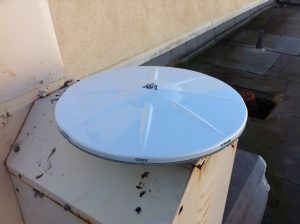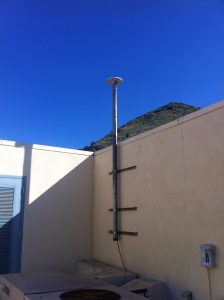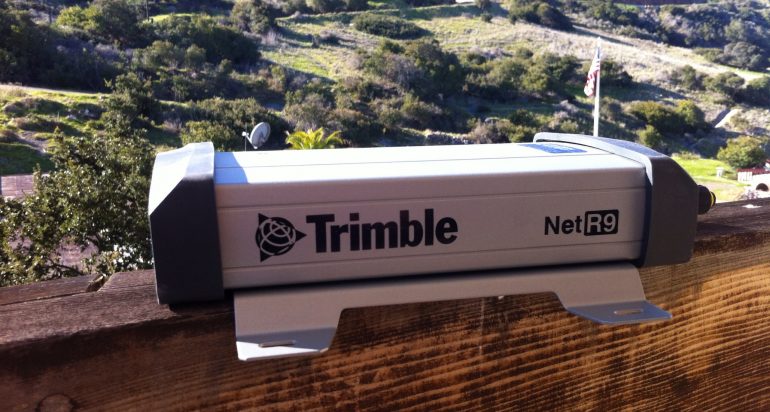One of the most widely distributed geographic technologies is now Global Positioning Systems (GPS), which allow anyone with a small device to map their location on the planet just about any time. Once the domain of the military and professional surveyors, GPS has become a part of the fabric of everyday life. Few people, however, think about the error that is inherent in the use of GPS, but these errors can be quite important to detailed mapping, navigation, and geodesic operations.

Antenna for the base station ready for installation.
Reducing error in GPS measurements requires a base station that communicates with satellites overhead and provides adjustments to hand-held units. SSI recently installed a new GPS base station at the Wrigley Marine Science Center on Catalina Island, both to support instruction in the GIST MS program there and to provide services to all those using GPS on the island and even the coastal mainland.

The antenna is affixed in place and ready for use.
The new base station will improve the educational experience on Catalina Island for the GPS course; it will provide feedback on error hourly, compared with daily for previous methods. The presence of the station will increase the accuracy of handheld units that would previously have 3-5 meter error to 1-3 meter error, and units that previously had 1-3 meter error, will now have sub-meter accuracy.
Dr. Su Jin Lee, who teaches the GPS course on Catalina, was delighted to participate in the installation of the new equipment. “Now my students will not have to wait as long for feedback on error. It will make the experience more dynamic.” Dr. Darren Ruddell, who also teaches the course and coordinated the installation, was excited to share the new resource with the community. “The base station is open for use by anyone, and is part of our efforts to support the research infrstracture at Wrigley, which is such a great place to learn.”





